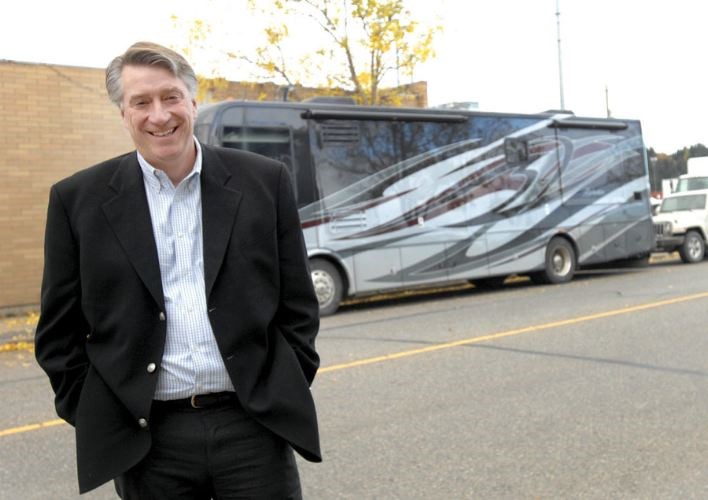Canada's newest senator has a big idea to revitalize the beleaguered institution.
During a visit to Prince George on Tuesday, Alberta Conservative Senator Scott Tannas said the Upper House of Parliament has the ability to add value to Canadian democracy, but first needs its mandate reshaped to focus on, well, big ideas.
"I think the most important thing the Senate could do is take problems in Canada - and we have lots of them - that take a really long time to solve because they're complicated or they're controversial or they just are going to take a lot of thought and then work to bring people together, form a consensus and ultimately have that result in legislation," he said.
Tannas used the example of Aboriginal affairs, which he said the House of Commons can't devote enough time to because it has to deal with elections every few years. He said the Senate would be able to do "enormous work" towards solving some of the challenges facing the complicated file.
The reputation of the Senate has been tarnished by a series of housing, travel and expense account scandals in recent months which have many questioning the viability of institution which has been around since confederation.
Tannas, who was appointed to the Senate this spring, said he believes there is still lots of potential for the Senate to do great things and pointed to the many talented people from a wide variety of backgrounds who populate the Senate.
"It's unfortunate there are a few - less than a handful - of people that are defining in people's minds who makes up the Senate," he said. "The fact is the Senate is made up of an amazing collection of extraordinary Canadians."
Senate reform has often revolved around the idea of the Triple-E model, making it effective, elected and equal. Tannas said the goal for now should be to focus on the first of those objectives.
To make the Senate more effective, Tannas said its reports need to be more focused on relevant issues. He said some of the studies, like the Kirby report on healthcare in 2002, have led to substantive changes in legislation and policy, but others have been left on the shelf gathering dust.
"The challenge for senate reform is how do we take the things that have been recognized as successful and do more of those and do less busy work," he said.
Tannas also said the Senate needs to get back to its legislative roots.
In the last 13 years, he said the Senate has only provided amendments to about five per cent of the bills it passed which originated in the House of Commons - with many of those changes clerical in nature.
Historically, Tannas said the Senate has suggested amendments to up to a quarter of all legislation that goes through the chamber and he would like to see a return to that level of scrutiny.
As a representative from the only province which elects its Senators, Tannas would eventually like to see more of his colleagues face voters, but rather than mandate provinces hold elections he supports the Conservative policy of having each jurisdiction decide if it will hold a vote.
If elections are held, Tannas said senators should be limited to one, nine-year term, so they can focus on long-term projects and not disrupt the existing balance with the House of Commons.
"I think potentially without the clarity of purpose you could end up with the United States' situation, which would be everybody's nightmare," he said. "You'd have two bodies that would create gridlock."
As for equality in the Upper Chamber, Tannas supports the idea that the Senate seats should be allocated regionally rather than provincially.
If there is no institutional will to make the changes believes are required, Tannas said he would support the abolition of the Red Chamber.
"I would be unhappy to be the last senator," he said. "But I agree with the sentiment that us as Canadians, we're not getting value and we've got to do something."
Tannas's visit to Prince George was part of larger tour which began in Leduc, Alta., on Saturday and will conclude in Cranbrook on Friday.
The trip serves a dual purpose as Tannas is remaining on as the CEO of Western Financial Group until the end of the year and is using the opportunity to visit some of the company's offices in the region. He said the trip is not being funded using any government dollars.



